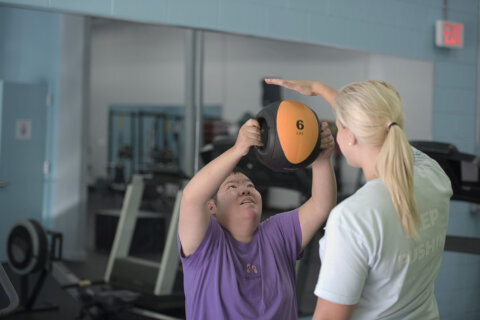If an aging person is experiencing confusion, memory loss or forgetfulness and you suspect Alzheimer’s disease, you might be wrong.
“There are also things that can mimic it that can be treated,” said Dr. Andrea Klemes, chief medical officer of MDVIP. “You need to be an advocate for yourself and for your family.”
Things such as dehydration, vitamin B6 or B12 deficiencies, and urinary tract infections in older people may be misdiagnosed as Alzheimer’s when they’re treatable causes of dementia.
“Thyroid disease and depression, also, if treated, can reverse any cognitive changes,” Klemes said.
September is World Alzheimer’s Month, and it turns out people have a lot of misconceptions about brain disease.
“Is Alzheimer’s a normal consequence of aging? No. Is Alzheimer’s fatal? Yes,” Andrea Klemes said, noting some examples of what people frequently get wrong.
“Two out of three people are concerned about their brain health, yet nearly half failed the brain health IQ quiz” that Klemes suggests everybody take.
You also might want to schedule a dental appointment.
“Going to the dentist is very important for brain health and heart health. Gum disease can lead to inflammation in the whole body, and that can lead to giving you a heart attack or a stroke and dementia,” Klemes said.
When is forgetfulness something of concern?
Klemes said a normal part of aging might include walking into a room and forgetting what you were looking for, or forgetting the name of a famous actress that might occur to you hours later.
Memory loss that suggest a problem may be developing involves things that can disrupt your life.
Examples include poor judgment and poor decision making such as someone who’s struggling with money buying a new car, or someone with diabetes denying that they routinely forget to take their insulin.
Ways to boost brain health include a healthy diet, exercise and mental stimulation.
Klemes also stresses the importance of maintaining social connections — especially during this time of isolation related to the pandemic.
“If you can — safely — have family members do drive-bys,” Klemes said. “Maybe sit outside under a tree 12 feet apart with masks — being safe — but at least [help them] connect to others.”








